Book Reviews by Genre: Science Fiction
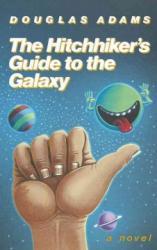
I'll be honest. The main reason I picked up this book was because I kept hearing people talk about how 42 is the meaning of life and I had no idea what they meant. I also read it because I'm generally a big fan of science fiction, but it was mostly to understand the 42 reference. Despite my less-than-admirable intentions, though, I massively enjoyed it. The author is very creative and the writing itself is well-crafted, but, at the same time, the book doesn't take itself too seriously. It's hilarious. From the "42 is the meaning of life" idea that everyone talks about to the name "Slartibartfast," this book made me laugh out loud several times, which isn'ta common occurrence when I'm reading. I also read it as an audiobook, and Stephen Fry as the narrator makes it that much better. My only complaint about it is that the ending was a bit abrupt, but that's what sequels are for, so all in all, I would highly recommend.
Review grade: 10
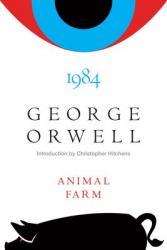
1984 by George Orwell is a phenomenal piece of dystopian literature that comments on the role of government and what freedom really is. The book follows the story of a lower ranking party member named Winston Smith who begins to defy the ideals of Ingsoc or "English Socialism" and the thought police. 1984 imagines what the world would have been like if the Axis powers in World War II had won/ if the war had never ended. I highly suggest this book be read along with Brave New World by Aldous Huxley because the juxtaposition between the two is fascinating. I recommend any reader who enjoys dystopian, philosophical, political, historical, or science fiction to read this book as it encapsulates all of those genres.
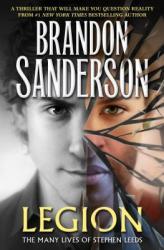
I devoured this book (a set of three novellas) in three days and really enjoyed it. Brandon Sanderson is such a creative author, and here's yet another book of his that doesn't fail to impress. It tells the story of Stephen Leeds, who creates hallucinatory "aspects" with certain specialties to help him compartmentalize his knowledge to learn things and master abilities. He uses their help to solve mysteries as a way to give himself a purpose. Stephen's cases were intriguing to follow, and his aspects were really fun characters to get to know and get invested in. Stephen himself felt rather flat at the beginning, but as I read further, I realized that was an intentional decision. Because of his aspects, his personality is contained in all of them, so without them, he's sort of empty. It was awesome to watch him grow in this.
The only reason I gave the book 4 stars instead of 5 is because, as a set of novellas, the first two don't relate very much to the third, or to each other. I wish he had found a way to tie the cases into the finale more than he did. Otherwise, a great read, especially for a quiet weekend at home. I would definitely recommend!
Reviewer grade: 10
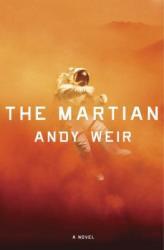
I read the Martian because I love space. I love that Andy Weir tried to be really realistic with this novel. Even though nobody has been to Mars yet, his story of how they got there is pretty realistic. Also, I enjoyed Mark’s sense of humor in the book! If you like space, this book is for you! I would highly recommend this book, it’s a really good read.
grade: 11th
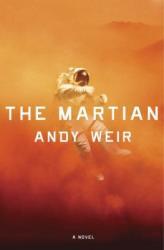
The Martian, by Andy Weir, is a near-future realistic fiction novel. The base plot is Mark Watney, a botanist, is a part of the Ares 3 Mission, the NASA Mars Program. During an emergency take off, Mark is inadvertently left behind and assumed dead. However, this is not the case. Now Mark must find a way to survive alone on Mars, a planet trying to constantly kill him. Will he survive and make it back home? Read to find out. Even if you have seen the movie, read the book. The movie is very good at staying true to the book, but the book will still blow you away. *There is some adult language, so I would recommend this book for teens and adults.*
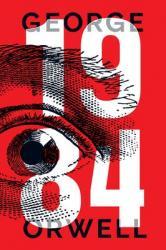
1984 by George Orwell is about a London where thought, speech, press is no longer free because it is all controlled by Big Brother and his Party. Every movement, gestor, spoke word is closely monitored by telescreens, hidden microphones, and cameras then reported to the Party. If you are found guilty of action or thought against the Party, you disappear. The Party controls everything. The protagonist, Winston Smith, a Party member who doubts the Party. The author does a fantastic job describing a place without freedom and the anxiety of living in it. Orwell makes the world come to life and makes you feel like it could happen. Personally, I feel like I could connect to the protagonist and the world. This book was quite unpredictable but easy to follow. All in all, It's a fantastic read, and I would recommend it with a 5 out of 5 stars.
Grade: 9
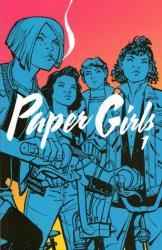
The first volume of Paper Girls introduces the four main characters, middle school girls in the 80s that deliver newspapers. The story begins with Erin, the new paper girl, and follows her as she meets the other three girls. After finding a mysterious capsule, they discover that the world seems to be ending when the sky changes and monsters appear in the sky. They cannot find any other person from their small town and eventually discover that many of the town's citizens simply vanished. The graphic novel follows the girls as they navigate this doomsday situation and their discourse over who they should trust. It begins in the 80s offering middle school characters reminiscent of many movies from the 80s, while setting up a mystery and the supernatural backdrop the rest of the story sets out to explore. Vaughan indicates that something large or even sinister might be behind the previous events, creating a compelling and unique mystery. Along with the incredible storytelling, the art in the novel is phenomenal, but the coloring really makes the book standout and is immensely pleasing to look at. Paper Girls is definitely one of my all time favorite series, and the first volume introduces the unique world of Paper Girls and its characters incredibly well. Reviewer Grade: 11
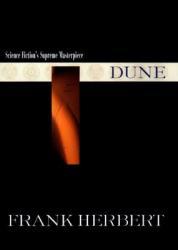
I chose to read Dune in anticipation of the coming movie, and as a much appreciated suggestion from my father. Dune follows the adventures of a young boy Paul as he enters manhood. He fights to keep the planet of Arrakis, and then goes on to fight for the title of emperor. It addresses a group of people, the Fremen and their religion of turning Arrakis, the desert planet, into a beautiful land through terraformation. This book draws you in and keeps you hooked, telling a story of becoming a man, while also making it a book worthy of praise, always surprising you with one twist or another.
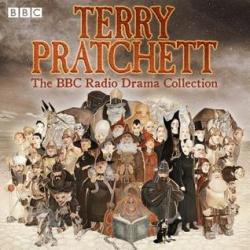
Sadly, I wasn't impressed with this, as a radio drama or an audio version of Pratchett's work. For Pratchett's Discworld books, this is definitely not an alternative to audio books of these novels. As a radio drama, the abridgment of the books is limited almost exclusively to sections of dialogue. The narration and storytelling background sounds aren't enough to allow the listener who hasn't already read or listened to the books to understand more than the basic plot. I was really surprised by this one, because BBC usually does such good work.
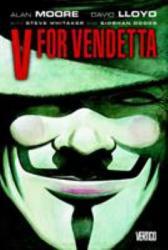
V for Vendetta follows V as he fights against an authoritarian government and trains a successor. The book questions the cost of losing art, literature, and beauty in an attempt to create complete control over society. The art adds another dimension to the story, and the colors used in V's house compared to the outside world emphasize the underlying message. V's character is captivating because he possesses such knowledge and culture yet brings destruction. This leads readers to consider the necessity of violence to preserve culture. V's mask holds similarities to Guy Fawkes', and certain actions between the two are also similar, adding historical parallels to the story. V's strong ideals and actions to back them up lead him to become the face of a revolution but at what cost?
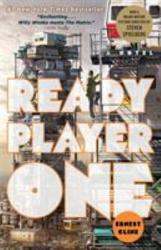
Ready Player One, a book by Ernest Cline, takes place in a dystopian future in 2045. The majority of the population spends most of their time inside a massive VR MMOSG, massively multiplayer online simulation game, called the Oasis. When the billionaire creator of the Oasis died, he left clues for an Easter Egg that he had hid in his game, and the first one who finds it gets his entire fortune. This story is about the adventure of Wade Watts, a kid from the Stacks in Columbus, Ohio, as he searches for that egg. This book is amazingly written, and you will be wanting to know what happens next as you read. You may have seen the movie, but the book is a masterpiece, the story is much richer, and definitely worth the read!
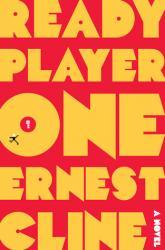
I was given Ready Player One for my birthday. I would suggest this book to readers interested in science fiction and immersive video games. The author writes with surprising detail, going through Wade's thought process and adding twist and turns at each chapter. The author makes semi-relatable characters, fighting to win the ultimate prize. The entire book speaks of the time, heart, and soul the author spent writing a fabulous book.
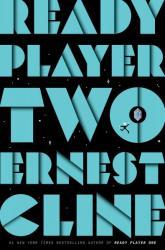
I received Ready Player Two as a gift. I would suggest this book to anyone who enjoyed the first book. Although this book is not as good as the first one, I enjoyed it immensely. Wade hunts down shards for a new Easter egg in the oasis. Wade's compelling character meets new people and gains a completely new quest. Ernest leads you on a journey you don't want to end.
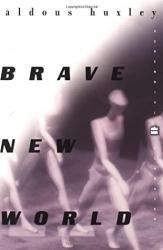
Brave New World is a classic dystopian novel, written in the early 1930s by Aldous Huxley. Set in a society in which humans are manufactured and programmed depending on their assigned social class, it addresses individualism, conformity, and the dangers of complete government control. Citizens in this dystopia frequently take a drug to subdue their emotions, living in a state of ignorance and 'bliss' as they go through the motions unquestioningly. In order to keep the system of manufacturing people running smoothly, certain things are considered taboo--such as literature, religion, and family--while what we typically consider unorthodox is commonplace in this society.
The story follow several central characters who don't completely fit in or believe there could be more to life than what they experience every day. Huxley takes readers to a 'Savage Camp' where John, the protagonist (whose ideals are completely different from everyone else's), is introduced, and the other characters experience an extreme contrast to their advanced and ordered society. Readers experience John's intense internal conflict as he attempts to find his place in the new world into which he is thrust; they also learn more about the ideology of the dystopia, and what goes on behind its 'perfect' facade.
I enjoyed most aspects of Brave New World, and would recommend it to dystopian readers who appreciate a deeper meaning. However, there were some parts of this novel that I found disturbing, as what's considered taboo is the opposite of how we view things in our world. Sometimes I had trouble connecting with the story emotionally, and I would've liked more specifics about how the dystopia came to be. But looking past the negatives, the themes Huxley brings up are very important, and even pertinent to society today. His characters have depth, the underlying themes make readers think, and overall it is an interesting concept of a future world with complete dictatorship. Brave New World is a classic that I believe everyone should read.
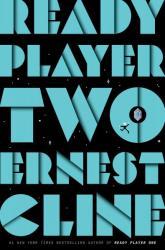
Ernest Cline has written another masterpiece. While Ready Player One could have remained a stand-alone novel, Ernest Cline has given us a better look into his dystopian universe with this sequel. After James Halliday posthumously releases another quest, The High Five must once again unite to solve all of the riddles. However, this time the stakes are higher as the lives of the majority of OASIS users are on the line. With adventures that include John Hughes movies, Prince, The Lord of the Rings, and many more pop-culture references, Ready Player Two is a thrilling action-packed adventure. I highly recommend this novel for any middle school or high school aged reader, or any lover of pop-culture from the later part of the previous century.
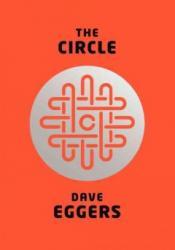
The Circle is an incredibly interesting book. The novel centers around Mae Holland, who sets off to work at The Circle after graduating from college. As she works through her career, Mae starts to question this highly acclaimed tech company and its Three Wise Men. Its main ideas discuss privacy, and specifically, how corporate run privacy standards lead into modern governmental systems. The ideas play into the fascinating world building around Mae Holland and her ideas of digital utopianism. The way she questions mob mentality behind the hive mind that can be global datafication is unique and provides for a great read. While the characters are somewhat lack luster, the novel makes up for it with its social construction and suspense. While there are some plot holes, the holistic concept is incredible. Overall, I would recommend this book to anyone interested in the digital world or dystopian-like settings.
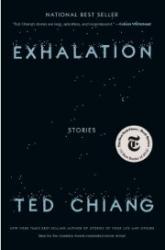
My librarian uncle introduced me to Ted Chiang recently, and I was so intrigued by such an award-winning author who wrote exclusively in short stories that I had to check out one of his books. Exhalation is a collection of these stories, and I can see why Chiang is lauded as a writer. It seems that modern science fiction is too focused on new technologies and how they can lead to utopias or dystopias. In Chiang’s stories, I saw some stark realism that took well-tread topics of the genre and examined them through a lens that was extremely realistic to how society would function with such advancements.
It was refreshing—a sigh of fresh air, or exhalation, if you will—to read stories about parallel universes, artificial intelligence, and time travel that didn’t stick to the same tropes that have made science fiction almost boring in comparison. In the end, Chiang is so concise with his language as to create these universes anchored in our reality and uncover all the intricate ways in which new technologies would change it without delving into the fluff of a full-blown novel. And perhaps that’s what makes these short stories work: focusing on how people interact with new technology, instead of just society at large.
These stories' personal nature hits home, mostly because they were pulled from current technologies and extrapolated into the fringe sciences that are on the cutting edge. For instance, we already record much of our days, so how does our memory change if we have a perfect record of the past? Additionally, how many technologies are made widely available as entertainment first, and how many interest groups pop up as fans of these technologies until they are eventually made obsolete? These and many other thoughtful topics are only some of the reasons I would recommend any fan of true sci-fi read this book.
A collection of some of the best sci-fi stories I’ve ever read, I give Exhalation 5.0 stars out of 5.
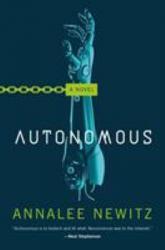
Science fiction often seeks to answer the moral and ontological questions that we’ll soon face in future technological landscapes. When I picked up Autonomous, I was expecting an examination of artificial intelligence and the ability for robots and machines to eventually become sentient. Unfortunately, that was only about half of the book that I ended up reading. The fact that there were two dueling scientific topics in this book made its message muddled, let alone misleading. It really should have been branded/titled as a book about pharmaceuticals and the patent system that holds the healthcare system hostage.
While I’m sure the pharmaceutical elements of this story are accurate (at least in a fictional context), this wasn’t the reason I wanted to read Autonomous. Granted, telling two parts of the story—from the POV of the pirate chemist and from the POV of the law enforcement sent to catch her—was a good way to reveal the plot so that each POV doesn’t know what the other side knows. That being said, the AI element of this story seemed to be relegated to a sub-plot in the law enforcement POV that ended up being disappointing to me.
I’ll grant that realistic characters may not be likable characters, but in the end, I was not too fond of any of the characters in this book—with the AI being the one exception. I didn’t care for the chemist’s messy past just as much as I didn’t care for the clearly homophobic law enforcement officer. Would the “romance” in the story have been different if the AI’s origin was different? Sure, creating morally gray characters makes the story more real, but it ultimately just made me irritated with these individuals. And since the story didn’t know which scientific concept to pursue, the whole idea of the AI being “autonomous” could have been cut, and the plot really wouldn’t have changed at all, leading me to my initial statement that the title of this book is misleading.
A misleading title for a book about pharmaceutical piracy, I give Autonomous 2.5 stars out of 5.
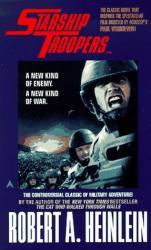
Starship Troopers exemplifies the signature writing style of Heinlein: an outrageous setting that still manages to capture familiar aspects of everyday life. I marveled at the intricate universe Heinlein crafts. He describes every aspect of political relations with alien species and the intricacies of a military that ranges across the stars. The book follows a boy named Juan Rico as he comes of age and joins the infantry. Heinlein describes every aspect of Juan’s life in basic training and the great battles of his career like an ancient epic; sparing no detail and giving elaborate descriptions of the enemies of humanity and the battles in which they were defeated. Starship Troopers is the perfect science fiction novel for someone who is looking for heaps of action combined with drops of philosophy and social commentary, all brought together into one spectacular and dazzling universe.
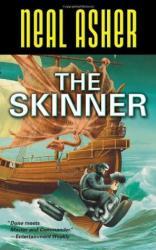
The Skinner is set in a distant future where science and technology have advanced to the point where humans live nearly infinite life spans and travel the stars with ease under the unified governance of the Polity. Neal Asher crafts a complex universe in which this story seems a miniscule part of a gargantuan timeline, I could spend countless wonderful hours studying the history preceding the novel! He crafts complex main characters: Janer, an employee of an insectoid hive mind; Erlin, a scientist with a strange past; and Keech, a reanimated corpse with unfinished business. The three unlikely acquaintances set out on the planet of Spatterjay, a world covered almost entirely with water, inhabited by humans known as hoopers who are infected with a virus that gives them superhuman strength and regeneration. When a mysterious hooper myth proves true, the intrepid visitors must work together to survive in an adventure-packed and mystery-filled journey with all the best elements of Robert Heinlein but with a 21st century audience in mind.
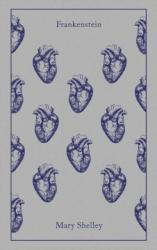
Frankenstein, or, the Modern Prometheus is a great gothic read. Like any other gothic novel, it is dark and mysterious, with elements of horror in it. While it had a rocky start for me, I soon got lost in the characters, with their wants and needs. The detail was amazing, while the wording was, em, very 17th century, but that makes the book no worse. All around, this is a riveting book that will capture your attention immediately.
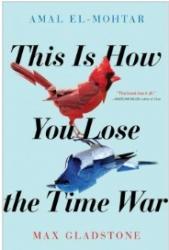
This time-travelling story of love and genocide centers on two rival agents battling to secure the best possible future for their warring factions. It opens with a blood-covered Red, the last woman standing on a battlefield heaped with corpses. She finds a letter that starts with “Burn Before Reading” from Blue, her rival whom she has spent lifetimes trying to thwart. So it starts with a taunt followed by a challenge scratched in a lava flow and a message woven into the DNA of a tree cut down by marauding armies. These spies never meet but these compromising letters – certain death if discovered by their superiors – build upon a mutual understanding that evolves into love. Who better to understand someone weary and confused by merciless, contradictory orders than their rival? Or is this an attempt to turn the other into a double agent? Or lay a deadly trap? This novella deftly avoids the confusion that spoils average time-travel yarns by making each of the chapters into a vignette, told from either Red or Blue’s perspective, until a satisfying, meaningful conclusion.
Awards: 2020 Nebula Award for Best Novella, 2020 Hugo Award for Best Novella
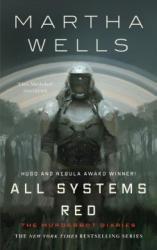
We all struggle to figure out who we are. It’s no different for a robot that’s managed to secretly override its governor unit and develop self-aware independence. The artificial construct, made up of regenerative organic and artificial parts, privately calls itself Murderbot out an emerging sense of guilt it tries to squash by watching hours of mindless TV. But even that distraction cannot keep a socially awkward, self-conscious entity from developing feelings about the humans it serves. That internal conflict is so realistic it is easy for the reader to forget it is an artificial construct narrating. Murderbot’s deadpan humor keeps the 2017 novella from bogging down and raises it well above a familiar action/corporate malfeasance plot. The novella is the first of a five-part series, all available through PPLD, with a full-length novel, Network Effect (May 2020) continuing Murderbot’s journey of self discovery and soap operas. A sixth series entry is scheduled for April 2021.
Honors: 2017 Nebula Award for Best Novella, 2018 ALA/YALSA Alex Award, 2018 Hugo Award for Best Novella, 2017 Philip K. Dick Award finalist.

It can be difficult to judge a book, especially one as critically acclaimed as Ringworld, with 50 years of scientific and societal progress between when it was written and today. On the one hand, there are many scientific concepts explored in this book that we almost take for granted in modern sci-fi. On the other hand, the stink of 1970s misogyny doesn’t age very well, and this book is a prime example. Even today, sci-fi authors are still trying to dig out from the sexist tropes that books like this perpetuated throughout the genre. It’s a complicated, uphill battle, but we’re trying to be better than this.
For 1970, I do have to admit that the science presented here is relatively revolutionary. Unfortunately, the descriptions were occasionally a bit dry and felt more like reading a textbook than a sci-fi adventure. I could appreciate how Niven described the indescribable scale of something as massive as the Ringworld. Additionally, the alien races were well-rounded and had complex physiologies and backstories that made the group dynamic entertaining to read. However, the only thing well-rounded about the women in this book were their bodies.
Aside from the considerable age difference between the two romantic leads being an acceptance of pedophilia, it’s clear that Niven only thought of women as objects. This is disappointing because the story could have been more interesting if the female characters had any agency other than being driven by pleasure or luck. I have to recognize that this book is still a snapshot of its temporal circumstances, but that doesn’t necessarily excuse it in today’s society. Acknowledging that it’s from the 1970s, modern works should be more aware of these flaws when using such a pivotal science fiction book as a base for today’s books.
Some great science with not-so-great misogyny, I give Ringworld 3.0 stars out of 5.

Brave New World, written by Aldous Huxley, is a personal interpretation of society’s attitude towards technology. It takes place in a future, either dystopian or utopian, where technology reigns supreme, and humans are created in a lab. It offers commentary on where humanity’s values are placed, and where they should be placed. The characters have to choose whether or not conformity is the best option, and whether numbing the pain is better than understanding the suffering. Written in the 1930s, Huxley has a surprisingly modern style and understanding, and knowing that he was unsure of the future makes it an even more exciting book.
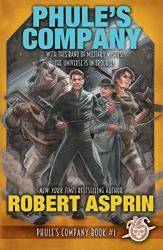
Phule’s Company combines humor and a great amount of detail in a single book. It also contains a good amount of growth mindset. Even though it's a novel, I think anyone could learn Growth Mindset from this. Though the humor is hard to see, it really is funny in a lot of ways. Some of the names are clever versions of household items, such as duct tape. Overall, this is an excellent book for anyone looking for a sci-fi.
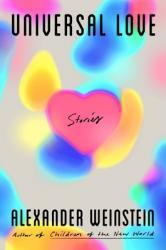
"Universal Love" is 11 short stories set in the near future, showing how people use technology to navigate relationships. In one story, a widower signs up for a program to re-create his deceased wife, only to find out his daughters downloaded a fictitious history from romance novels. Another story has testimonies of why people use on-line dating services. A third story explores the relationship of two robotic children who try to act like human children, even to the point of having real life problems and addictions. An interesting look at technology and how it could be in our not far future of how we relate to each other. One constant remains, and that is our need for human interaction, no matter the media we use to get it.
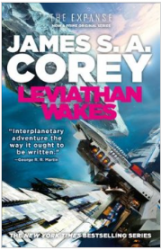
For years, my co-worker has been suggesting that I read the Expanse series of books. Before I finally got around to the audiobook for Leviathan Wakes, I took a slight shortcut and watched the television series on Amazon. This came in handy because I was able to pick up this book and immediately be able to visualize what was happening and who the characters were. Sure, the actors cast in the show are slightly different from their literary counterparts. Still, overall there was a lot in this book that I had already experienced with the television show.
I will applaud this book for being a hard science fiction story, but not shoving the calculations in the reader’s face. Sure, The Martian did an excellent job of explaining all the scientific challenges of interplanetary travel. However, Leviathan Wakes took this a step further and created a universe that’s still controlled by the same physical laws we encounter in the real world. Unless you know what you’re looking for, you’d never realize that the little ways to make life livable in outer space would manifest in the forms presented in this series. Basically—to quote the title of a Heinlein book—Gravity is a Harsh Mistress.
And while the television show had lots of different plotlines to follow through its four seasons, I do like how Leviathan Wakes focused on just two main characters and the discovery of the Protomolecule. Although—even though both characters came from different backgrounds—I would have expected their reactions to situations would have been more drastically different than they were. Still, even if both Miller and Holden felt like very similar characters, they were both written well enough that it was an entertaining ride, nonetheless.
A perfect blending of story and hard sci-fi, I give Leviathan Wakes 4.0 stars out of 5.
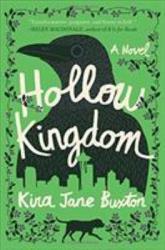
This debut novel is a refreshing romp through the Apocalypse narrated by a foul-mouthed domesticated crow whose only knowledge of the world is TV. This mash-up of "The Incredible Journey" and "The Walking Dead" has an environmental message, focusing on humankind's increasing disconnect from the natural world. You may want to reconsider all those hours of screen time. But do read this novel, which while a tad long, chronicles the adventures of S.T. (not a library appropriate name) and his heroic steed, the dim-witted dog Dennis. The crow tries to save humankind, learns about himself and the natural world in a frightening new Seattle featuring an emerging predator.
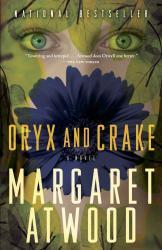
"Oryx and Crake" follows the character Snowman who is seemingly the last surviving human on Earth as he recounts the events that led up to his dystopian present. In this speculative fiction novel, animals are genetically modified to harvest organs for human transplant and spliced together to create fantastical hybrids like “rakunks” that are part racoon and part skunk. In addition, a new human breed is created to be physically flawless and void of normal human characteristics like envy or jealousy. This incredibly thought-provoking book challenges the reader to think about our present, and the choices we make that may lead us down a similar apocalyptic path. For example, it forces us to question how far are we willing to go with genetic modification. Although Atwood deals with serious topics in this book, she addresses them with such humor and over-the-top situations that the book is remarkably enjoyable. Furthermore, the characters of Oryx and Crake are some of my favorite literary characters.